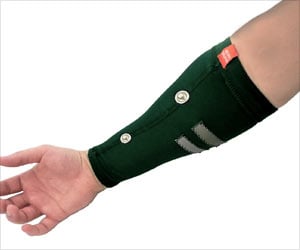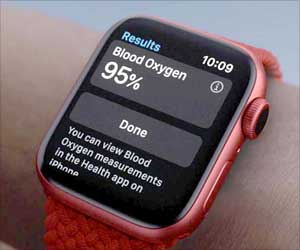- Muse Wearables' "Ring One" smart ring revolutionizes health tech by offering comprehensive health monitoring, NFC-based payments, and finger-based wearability
- Smart ring tracks vital health metrics, manage stress, and serve as a smart key, seamlessly integrating into users' lives for enhanced well-being
- It marks a significant advancement in wearable technology, shaping the future of holistic health and connected living
What is the future of wearable technology in healthcare?
Go to source).
Smart Ring, the Smart Cousin of the Smart Watch
The smart ring, named 'Ring One,' has the capability to monitor six different health metrics, including heart rate, blood oxygen levels, temperature, respiratory rate, heart rate variability, and blood pressure. Distinguished by its remarkably lightweight design, being 10 times lighter than a typical smartwatch, Ring One is designed for continuous wear, day and night, offering up to seven days of battery life.Prathyusha K, Co-founder and Chief Operations Officer at Muse Wearables, highlighted their insight gained from observing numerous users during the COVID-19 pandemic, emphasizing that the wrist might not always be the most accurate position for gathering health data.
Additionally, many individuals found it inconvenient to wear wrist trackers while sleeping. Consequently, the finger was identified as a more precise location for acquiring accurate and vital health information.
Sleep-tracking smart rings monitor and analyze sleep patterns, including duration, interruptions, and time spent in different sleep stages. These rings provide personalized recommendations based on the user's circadian rhythm, the body's natural 24-hour clock.
Innovatively, certain smart rings serve as smart keys. Take the Token Ring as an example, which incorporates an optical sensor. This feature allows users to unlock doors to their homes, cars, or offices without relying on traditional physical keys, access cards, or badges. Removing the smart ring from the finger automatically locks the door or restricts access.
Smart Ring: Your Healthcare Buddy
Smart ring offers an array of healthcare monitoring features like,Heart Rate Tracking:
This feature measures the number of heartbeats per minute, providing insights into an individual's cardiac activity and overall cardiovascular healthBlood Oxygen Levels:
Also known as SpO2 (Oxygen Saturation), this metric indicates the percentage of oxygen in the blood. It's crucial for assessing respiratory function and overall oxygenation in the bodySkin Temperature:
This feature tracks the body's temperature, helping to identify fever or abnormal fluctuations that might indicate an illness or infectionRespiratory Rate:
Respiratory rate measures the number of breaths taken per minute. It's important for evaluating lung function and detecting irregularities in breathing patternsHeart Rate Variability:
HRV is the variation in time between successive heartbeats. Monitoring HRV can provide insights into the autonomic nervous system's activity, stress levels, and overall well-beingBlood Pressure:
This feature assesses the force of blood against the walls of the arteries during both systole (heartbeats) and diastole (rest between beats). It's crucial for managing hypertension and understanding cardiovascular healthStep Count:
It counts the number of steps you take throughout the day, aiding in tracking physical activity levels and encouraging an active lifestyle.
These wearable features collectively offer a comprehensive overview of an individual's health, allowing users to monitor vital signs, detect abnormalities early, and make informed decisions about their well-beingSleep Monitoring:
Smart rings are a popular choice for sleep tracking due to their comfort and lack of inconvenience. In addition, some smart rings can gauge a user's stress levels by measuring electrodermal activity (EDA), the same parameter used in lie detector tests to assess emotional and cognitive responses through skin conductivityPhysical Activity Aid:
Fitness-oriented smart rings can track daily activities, such as step count, walking distance, and calorie expenditure. Many smart rings offer features for smartphone and device control, enabling users to set alarms, receive message and call notifications, and manage music playback. This functionality helps reduce screen time and enhance productivity
- What is the future of wearable technology in healthcare? - (https://blogs.bcm.edu/2021/11/10/what-is-the-future-of-wearable-technology-in-healthcare/)
Source-Medindia












